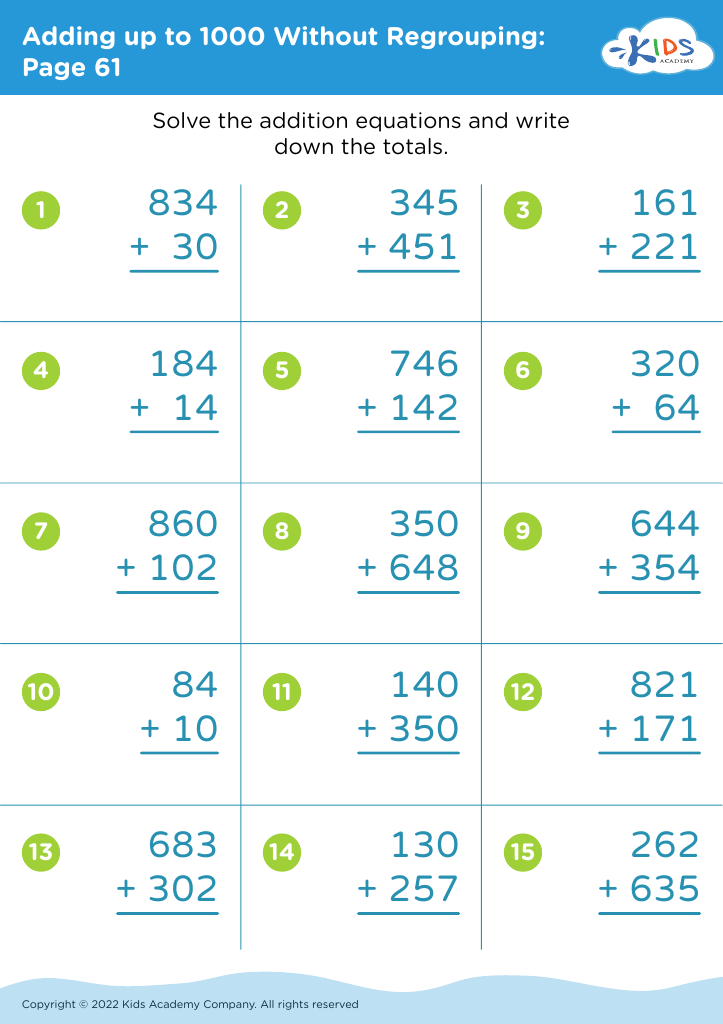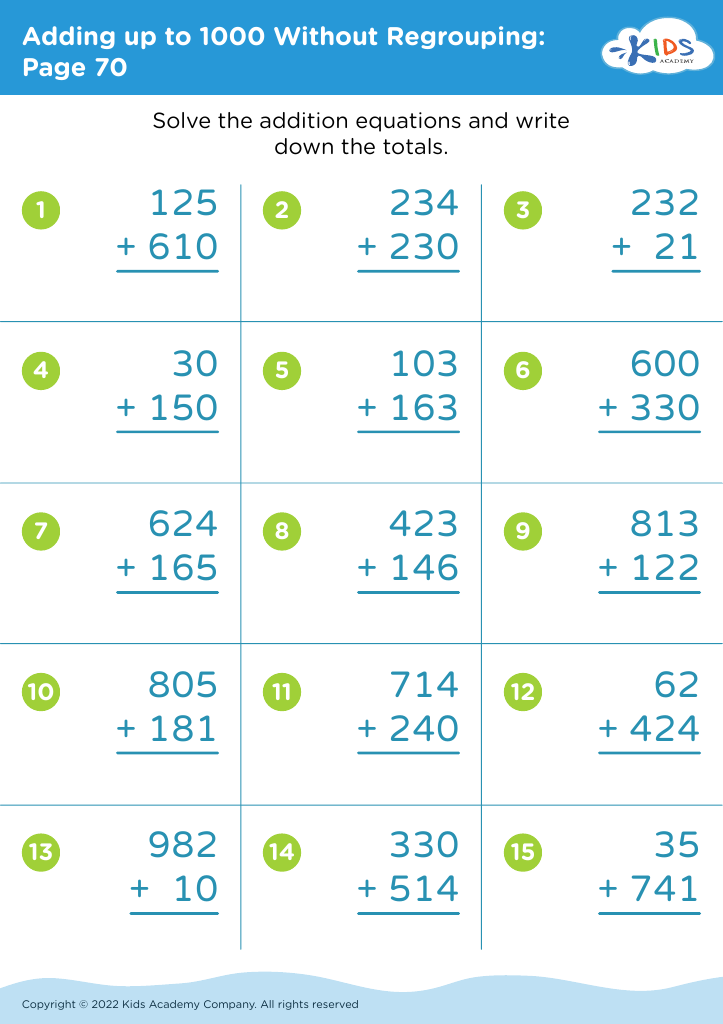Basic Addition Adding up to 1000 Without Regrouping Worksheets for Ages 5-9
4 filtered results
-
From - To
Welcome to our "Basic Addition: Adding up to 1000 Without Regrouping Worksheets" designed for children ages 5-9! These worksheets provide a fun and engaging way for young learners to master basic addition skills. Focusing on sums that total up to 1000, our resources help to build confidence and proficiency in arithmetic without the complexity of regrouping. Each worksheet features a variety of problems to ensure children practice and reinforce their understanding of addition concepts. Perfect for use at home or in the classroom, these worksheets are an invaluable tool for early education, making math both enjoyable and approachable!
Basic addition, particularly adding up to 1000 without regrouping, is a foundational skill that serves as the building block for a child's mathematical understanding. For children aged 5-9, mastering this skill fosters confidence and encourages a positive attitude towards math. When children are adept at adding numbers without regrouping, they can focus on higher-order thinking skills, such as problem-solving and critical analysis, which are essential as they progress in their education.
Moreover, early mastery of addition helps lay the groundwork for more complex operations, such as subtraction, multiplication, and division. This capability is fundamental not only in math but also in real-life situations; children need these skills for tasks like budgeting, measuring, and calculating distances.
Parents and teachers play a vital role in reinforcing these skills. Engaging children through fun activities, games, and everyday examples of addition can promote a love for learning and help them view math as enjoyable rather than daunting. Ultimately, when children understand addition and see its practical implications, they are more likely to succeed academically and develop a lifelong appreciation for mathematics.














